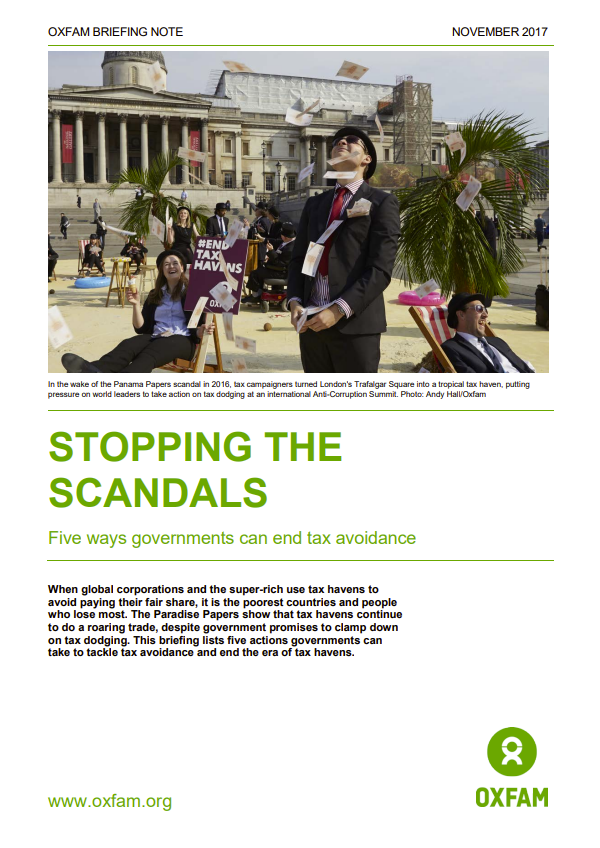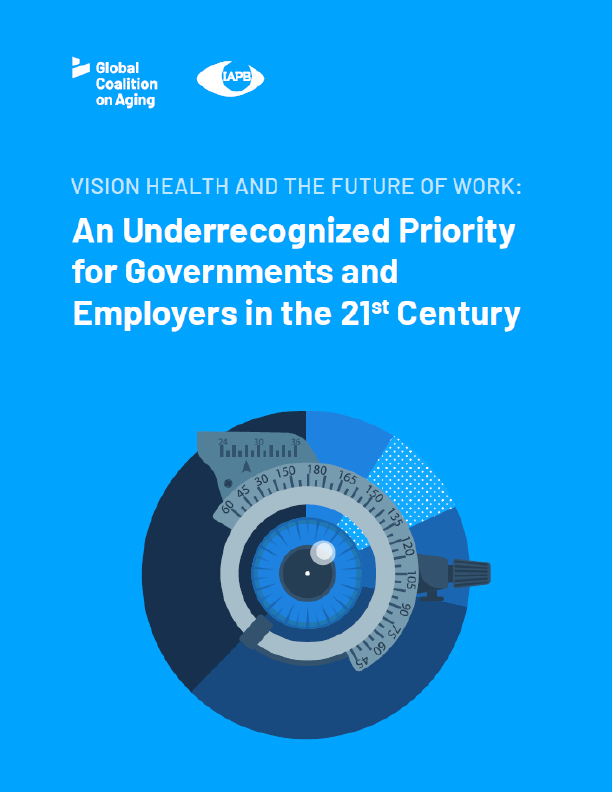When global corporations and the super-rich use tax havens to avoid paying their fair share, it is the poorest countries and people who lose most.
The Paradise Papers show that tax havens continue to do a roaring trade, despite government promises to clamp down on tax dodging.
This briefing lists five actions governments can take to tackle tax avoidance and end the era of tax havens.
INTRODUCTION
The Paradise Papers scandal reveals that rich and powerful corporations and the super-rich are continuing to exploit a rigged global system that allows them to avoid paying their fair share of tax.
The world is facing an inequality crisis, with eight men owning the same wealth as the bottom 3.6 billion people.1 The gap between rich and poor has reached new extremes, and this crisis is made far worse by an epidemic of tax dodging by the richest people and the richest corporations, whilst ordinary people have to pick up the pieces.
When global corporations and the super-rich dodge their tax-paying responsibilities, it is the poorest countries and people – particularly women – who lose most. As tax returns from wealth fall, countries are left with the options of cutting back on the essential spending needed to reduce inequality and poverty, or make up the shortfall by levying higher taxes on ordinary people.
The latest leaks show how company profits and the assets of the rich have been sheltered by a network of private banking, legal, accounting and investment industries exploiting the secrecy provided by tax havens. This enables the super-rich to avoid paying up to 30% of the taxes they owe.2 They have $7.6 trillion hidden from the tax authorities in tax havens,3 a figure greater than the gross domestic product (GDP) of the UK and Germany combined.
The use of tax havens to avoid tax is unacceptable. Progressive tax policies have a major role to play in tackling inequality. Governments should take action in line with Oxfam’s recommendations below, including cooperating to stem the harmful race to the bottom.
Here are five ways that governments can tackle tax avoidance:
1 END TAX HAVENS
• Establish a clear list of the worst tax havens, based on objective criteria, backed with powerful counter-actions, such as sanctions, to end their use.
2 END CORPORATE TAX SECRECY
• Commit to introducing PUBLIC country-by-country reporting (CBCR) for all multinational companies in EACH country they operate.
• Ensure development finance institutions only invest in companies that have adopted responsible tax policies, for example, by publishing financial reports for every country where they do business.
3 END TAX SECRECY FOR THE SUPER-RICH
• Establish a public, centralized register of individuals benefiting from ownership of an asset (including shell companies, bank accounts, foundations, trusts, property etc.).
• Automatically exchange data from the central register of beneficial ownership and financial data from their financial institutions with all countries, including developing countries.
4 RE-BALANCE TAX DEALS
• Ensure negotiations on tax treaties avoid exploiting developing countries’ tax bases.
• Ensure cooperation agreements brokered by donors and international financial institutions avoid exploiting developing countries’ tax bases.
5 LEAD THE WAY ON TAX REFORM
• Support a new generation of tax reforms that lead to tax systems that deliver in the public interests of all countries.
• Create a global tax body to lead and coordinate international tax cooperation that includes all countries on an equal footing.











